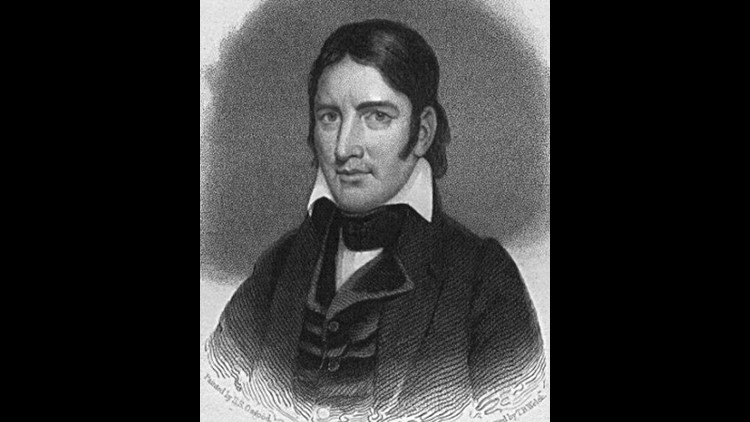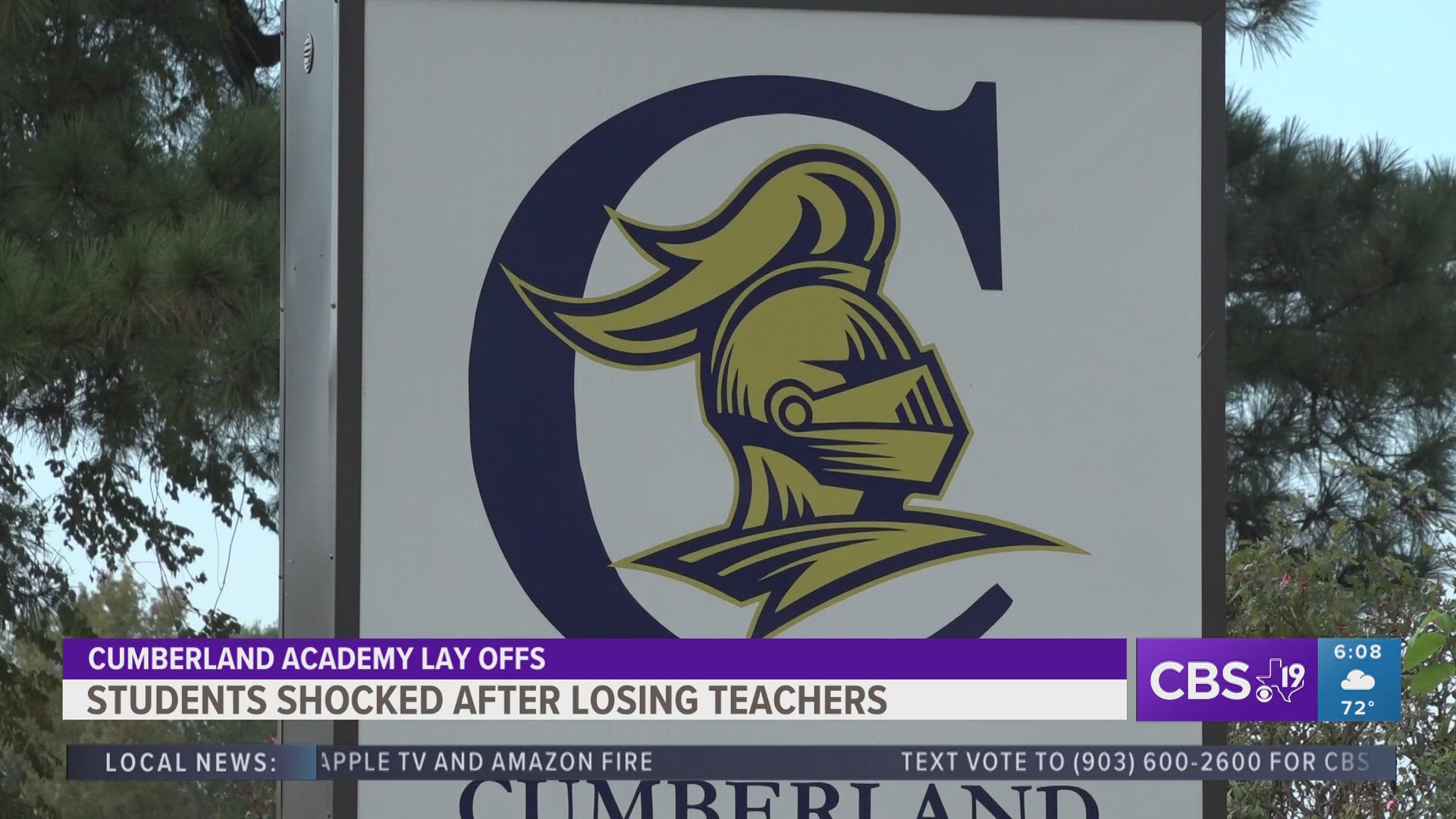He tamed the frontier in Tennessee, helped defeat the Creeks in Alabama, shook up Washington in Congress and fought for independence in Texas.
David Crockett’s exploits in America are well documented, even if they are exaggerated by the legend of Davy Crockett. Crockett represented to Americans in his time, and even into today, the realization of the American Dream: How a common hunter and frontiersman can rise to one of the most recognizable and influential figures in American history.
However, it was a decision he made in Nacogdoches that sealed Crockett’s legend and his fate.
By 1835, Crockett already achieved celebrity status by early-19th century standards.
Born in 1786, David Crockett was the rambunctious son of John and Rebecca Crockett in the wild and untamed frontier of eastern Tennessee.
As the boy grew up, his reputation as a precise sharpshooter began to spread. Some observers said young David could shoot his rifle 40 yards and hit an edge so accurately, he could split his bullet in two.
What is known about Crockett was that he was a skilled hunter, tracker and outdoorsman.
When a war broke out between American settlers and the Creek Indians in modern-day Alabama, Crockett volunteered as a scout in the Tennessee militia under the command of future American hero and president Andrew Jackson.
Crockett preferred foraging and hunting for food for the militia than fighting in engagements.
In November of 1813, Crockett saw his only major military engagement until the Battle of the Alamo at the Battle of Tallasseehatchee.
Under the command of Jackson’s subordinate John Coffee, Crockett’s unit attacked a Creek village, killing nearly 200 warriors. Crockett himself described the men burning down a dwelling with as many as 46 warriors and their families.
After the battle, Crockett remembered, “We shot ‘em down like dogs.”
Following the surrender of the Creeks in 1814, Crockett returned to his home in Tennessee. Only a few years later, he ran and was elected to his first public office. After a stint in the Tennessee legislature, Crockett was elected to the U.S. House of Representatives in 1827.
He was a natural campaigner with a knack for appealing to the common man that covered the rough Tennessee landscape. His authenticity as a log-cabin frontiersman who could live off the land helped Crockett become one of the first national celebrities.
A popular stage show at the time called The Lion of the West featured exaggerated exploits of Crockett. The character wore a coonskin hat that would later become a Crockett trademark.
Despite his fame, Crockett’s popularity in Congress began to wane, especially after taking a stance against President Andrew Jackson, Crockett’s former commander during the Creek War. In 1835, Crockett was soundly defeated in his run for re-election.
"Although our great man at the head of the nation, has changed his course, I will not change mine," Crockett said. " When he quitted those principles, I quit him. I am yet a Jackson man in principles, but not in name."
Shortly after his defeat, Crockett elected to move west to Texas, famously telling his constituents: "Since you have chosen to elect a man with a timber toe to succeed me, you may all go to hell and I will go to Texas."
But the unknowns facing Crockett was not merely the vast wilderness and open land, but the ongoing conflict between Texans and the Mexican government.
Since Mexico achieved its independence from Spain in 1821, the region known as Texas in northern Mexico was essentially unwanted land. It was not a trade center and was not close to any major Mexican ports.
Hoping to capitalize on America’s thirst for westward expansion and to prevent violence, the Mexican government welcomed settlers into Mexico. For a large track of land, settlers were expected to convert to Catholicism, learn Spanish and swear allegiance to Mexico.
However, the laws were disregarded, and tensions arose between the settlers and the Mexican government, who became increasingly suspicious of the new settlers.
By late-1835, the settlers began to gather arms, organize into militias and prepare for armed conflict against Mexico.
Three years earlier, militias in East Texas revolted against the Mexican central government in favor of Antonio Lopez de Santa Anna. The result was the Battle of Nacogdoches. With the capture of 300 Mexican soldiers by the militias, it was a resounding victory by the Texan settlers.
Three years later, the settlers revolted again, this time against the now-proclaimed dictator Santa Anna.
After a small victory at the Battle of Gonzales, where Texan troops repelled an effort by Mexican forces to capture a cannon, a call to arms was sent out across the territory and to frontiersman in the United States hoping to settle in Texas.
One month after the Battle of Gonzales, Crockett joined three other men and began to make their way toward Texas. First, the group made their way to Memphis and hitched a ride on a southbound boat on the Mississippi River. Then they made their way up the Arkansas River to Little Rock, where the residents held a reception to the famous visitor.
The residents of Little Rock found Crockett in the back of the hotel, skinning a deer. They asked him to do all the things Crockett had become known for like participate in a shooting contest and giving the “Hell and Texas” speech. His reputation had survived his political downfall in Washington.
The four men headed westward and crossed the Red River into Mexican territory. A short time later, on January 5, 1836, the party reached Nacogdoches, then an important border town. Again, the town threw a celebration for Crockett.
“I must say as to what I have seen of Texas, it is the garden spot of the world,” Crockett wrote to his daughter back in Tennessee. “The best land and best prospects for health I ever saw is here, and I do believe it is a fortune to any man to come here. There is a world of country to settle.”
His arrival was announced with sound of cannon blast. Crockett again gave his “Hell and Texas” speech before mingling with the crowd. However, following the banquet, Crockett began to position himself for a resurrection of his political career.
With the possibility of Texas independence, Crockett knew his popularity and distance from Washington would make him a strong candidate for any public office in the new Texas government. Before he could run though, he had to take allegiance to Texas, which was barely a provisional government at the time.
When presented to Crockett, the oath said Crockett would have to uphold “any future government” once Texas had gained independence. Crockett refused to sign it and urged the words to be changed to “any future republican government.”
The judge offering the oath, John Forbes, did change the phrase and Crockett signed the oath, his eyes looking toward a position in the new government.
Although not ordered to, Crockett decided to continue west, joining a militia led by William B. Harrison. At the time, East Texas was filled with supporters of President Andrew Jackson, who Crockett continued to publicly denounce.
Despite the initial celebration, Crockett knew he would have no friends amongst the majority Jacksonians. Instead, he decided to join a faction of anti-Jacksonians at the garrison known as San Antonio de Bexar.
Harrison named his militia the Tennessee Mounted Volunteers, in honor of their most famous soldier. They arrived in what is now San Antonio on Feb. 8. Two weeks later, the Mexican army surprised the small army in the town, who retreated to the Alamo.
“I am rejoiced at my fate,” Crockett wrote. “I had rather be in my present situation than to be elected to a seat in congress for life. I am in great hopes of making a fortune for myself and family. I hope you will do the best you can and I will do the same. Do not be uneasy about me for I am with my friends.
What happened the next 13 days, particularly on March 6, 1836, has been lionized in history books, oral stories, movies and every other facet of American and Texas culture.
Americans have a distinct image of Davy Crockett, wearing deer skins and a coonskin hat. He stood for American principals of freedom in a wild frontier, a lifestyle that makes the imagination explode with adventure and romance. The warrior who sacrificed his life for liberty.
Because of this legend, David Crockett is often misunderstood. He was much more than a simple frontiers man who may have been the best shot of his time. He was an intelligent and cunning politician. While he did not bear much resemblance to the character in The Lion of the West, he nevertheless played the role himself, but in a much humbler manner.
He calculated every decision much like another great political figure from America’s frontier a generation later, Abraham Lincoln.
However, there are places where legends hold true with reality. It is clear Crockett stood for his beliefs. He was willing to sacrifice his career and later his life for those ideals. He never lost his love for the frontier or curiosity for what lies beyond the next range.
Perhaps most importantly, David “Davy” Crockett died the way a folk hero is expected to: In a valiant fight against the odds for liberty. And thus, his legend will remain as America’s greatest folk hero.
“Pop, pop, pop! Bom, bom, bom! throughout the day. No time for memorandums now. Go ahead! Liberty and independence forever!”



